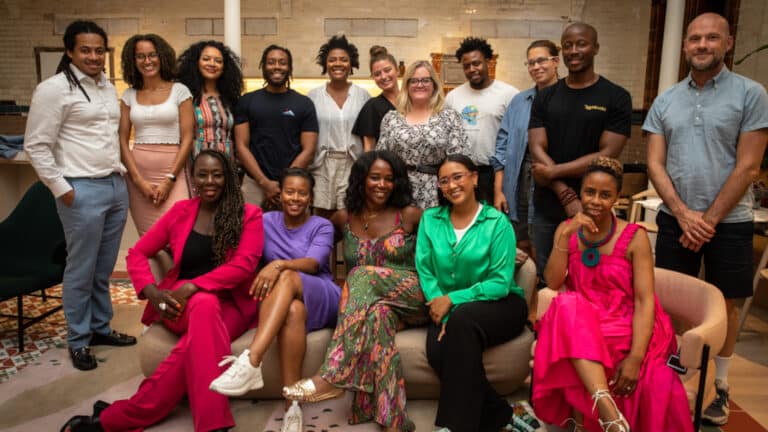A new study carried out by Channel 4 and Clear Channel has revealed that Black entrepreneurs face more obstacles setting up and running their businesses compared to white counterparts.
It found that Black business owners find it more difficult to raise funding and convince investors to believe in their businesses.
Channel 4’s commercial arm, 4Sales commissioned the research in partnership with home media company Clear Channel UK and the creator of the Black Pound Report, BACKLIGHT.
“Inspired by continuing the legacy of Channel 4’s award-winning Black To Front Project which commits us to improving Black representation on and off screen and the findings from BACKLIGHT’s Black Pound Report, we wanted to commission a study to identify how Channel 4 can help create real, tangible change for Black Owned Businesses across the UK. And the research has been enlightening having identified a clear gap not only in opportunity but also perception. We hope these findings inspire business owners and empowers UK industry to offer better, more targeted support to help Black and Multi-ethnic entrepreneurs, and in turn, help grow the British economy,” explained Amy Jenkins, Customer & Commercial leader at Channel 4.
“Off the back of this research we will shortly launch our own initiative to help nurture and support Black Owned businesses and entrepreneurs.”
Independent research company, The Good Side, was commissioned to undertake the study, which featured responses from more than 500 entrepreneurs.
The results showed that 56% of Black-owned businesses only receive funding once they had already grown a successful business, compared to just 35% of white business owners who were given the same requirement.
53% of Black-owned businesses agreed they had to fight hard to get others to believe in their business compared to only 40% of white owners.
There was also a gulf between how much funding people thought Black businesses received, compared to the reality.
White respondents guessed that 21% of total funding goes towards Black led businesses while Black participants estimated 15%.
But the reality is that Black businesses attract 0.24% of total venture capital investment [Diversity Beyond Gender: The State of the Nation for Diverse Entrepreneurs, By Erika Brodnock Co-founder and Head of Research, Extend Ventures]
The study also looked at entrepreneurial spirit among Black and Multi-ethnic entrepreneurs and found:
- 46% felt they could always run a successful business vs. 29% of white entrepreneurs;
- 71% expressed they always wanted to be their own boss vs. only 54% of white respondents;
- 62% of Black and Multi-Ethnic entrepreneurs started their businesses under 30;
- 1 in 8 Black and Multi-Ethnic entrepreneurs started their business as teenagers, twice the level of white owners;
64% of Black business owners cite advertising as being very important to grow their companies compared to white owners (40%).
“This comprehensive research study has been invaluable in helping us to better understand the challenges that Black entrepreneurs face and how we can further support them as a media owner,” added Caroline Forbes, Head of Sales – Out of Home Agencies at Clear Channel UK.
“With advertising being identified as one of the vital parts to business success, we will continue to create more visibility for Black-owned businesses on UK’s high streets through our Clear Channel Compass initiative in line with our on-going commitment to be both a Platform for Brands and a Platform for Good.”
Its Compass scheme offers Black-owned business free outdoor advertising space.
“Since 2015 my personal mission has been to remove the barriers to entry for Black Owned Business, by unlocking access to mainstream advertising platforms, with mainstream publishers like Channel 4,” said Maria St Louis, Equity & Inclusion Lead at Channel 4.
“The vision is to level the playing field, achieve Economic Inclusion for Black Owned Businesses and to prove that with the right levels of support they can successfully and sustainably contribute to the growth of the UK’s economy. Having worked at Channel 4 for nearly 20 years, I’m proud that this research is fully backed by the business.”











